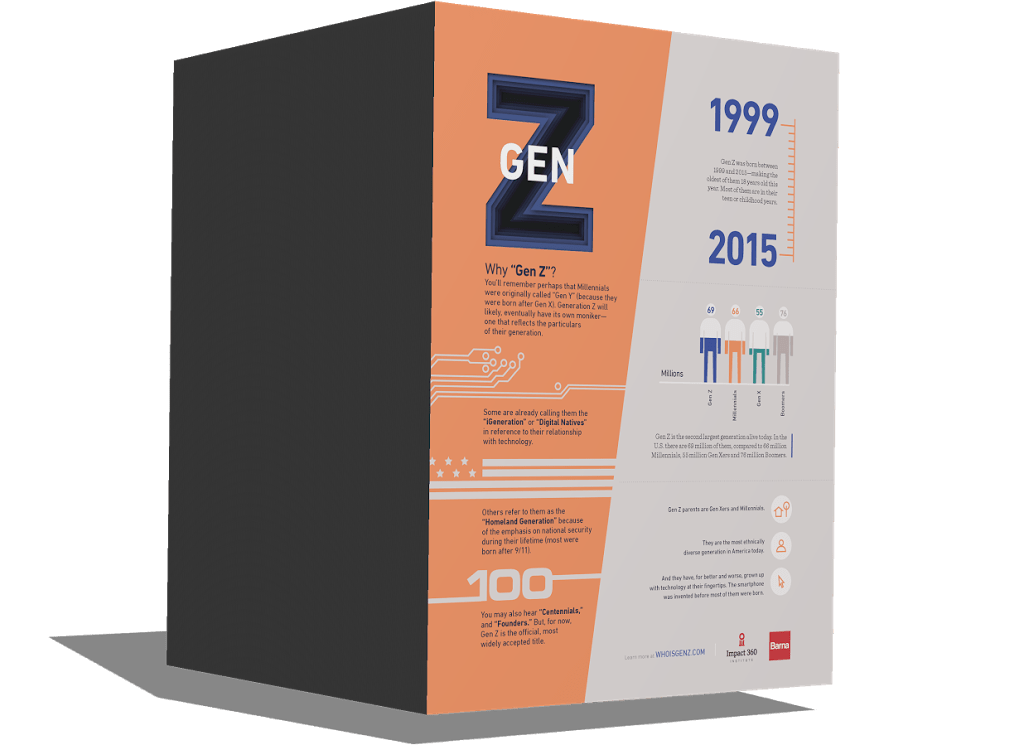Be sure you didn't miss the first installment of this series by clicking here.
I am continually and simultaneously both completely surprised and entirely unsurprised when older generations comment on the shortcomings of the current generation of youth and children.
The explanation for it, though, is simple: they don't know them. If you haven't spent time with today's teenagers, I get it. In fact, most teenagers throughout history probably didn't look like they would amount to all that much.
There is plenty to be concerned about with this generation. Mounting pressures from parents and schools, skyrocketing rates of depression and suicide, issues of safety and security online. Plenty of issues.
But I see a lot more hope than concern. And I see a lot of those issues being reduced if we build more intergenerational relationships (but that's also another blog post!).
Today, I want to look at what we can know about this generation by looking at historical generational trends and generational theory. This is a little bit nerdier of a post than I usually put out there, but hang with me and I think you'l find some really interesting tidbits ...
In the early 90s, William Strauss and Neil Howe published the book that started it all, Generations. Their study produced a theory that throughout American history (and theoretically before), a consistent cycle of social moments, alternating between secular crises and spiritual awakenings, has produced a four-phase cycle of generational types.
If that was a bunch of theoretical gobbledygook, I'll give you the most recent example. In the early 20th century, we had a social crisis - marked by major events like the Great Depression and World War I and II. Depending on what stage of life a generation is in during this social crisis, you can determine what generational type it is. The "Greatest Generation," which came of age during this social crisis, is what we call a "Civic" generation - one who ends up focusing on solving the issues through social change, developing new institutions, and doing whatever they need to to take down a whole bunch of Nazis.
The generation who was born during this social crisis, the "Silent Generation," is known as an "Adaptive" generation. They benefit from the social response of the civic generation, and then build on it. Traditionally, Adaptive generations "grow up as overprotected and suffocated youths during a secular crisis; mature into risk-averse, conformist rising adults," and then they become "midlife arbitrator-leaders during a spiritual awakening."
I won't bore you with the rest of the cycle today (contact me if you want to hear more about how this impacts your community and church), but what I want to point out is this: if trends continue, [Generation Z] is predicted to be an Adaptive generation. Our most recent Adaptives are the Silent Generation, and the Silent Generation pioneered the Civil Rights Movement of the 20th Century.
As these young people grow, they will not be satisfied with the status quo. But unlike Millennials who have been content to branch off and start their own communities and initiatives, [Gen Z] is likely to feel the need to change the entirety of society and prompt a new spiritual awakening, a new Civil Rights era.
Currently, we're seeing Millennial/[Z] cuspers speaking out in the wake of the Parkland, FL school shooting. These young people have the entrepreneurial spirit of Millennials combined with the need for wholesale social change of the Adaptive [Generation Z]. Change is on the horizon, friends.
What will be interesting to see as these trends are proven true or bucked entirely (this is all simply a theory and does not reliably predict any outcomes), is how the trend toward shorter time frames between these social moments, and shorter generational turnings, will affect the development of these young generations, especially Millennials and [Generation Z].
So friends, what I want to offer you today is hope. A picture of the future that, if we take the rhythm of history seriously, gives us a bright picture of what these young people stand to accomplish for themselves and for society in the future.
Nothing is certain, but I believe if we give them our support now, and continue to be in relationship with them and help them develop, they will become our next Civil Rights leaders. They will lead us into a new era. I'm ready to follow.







